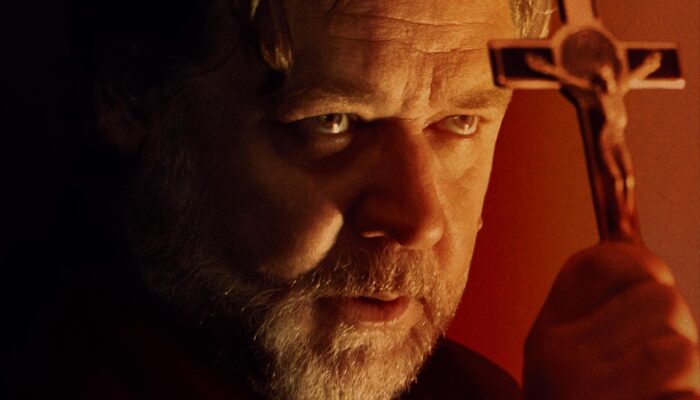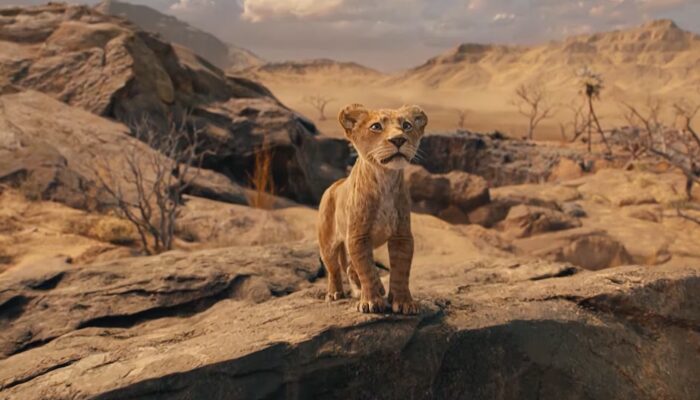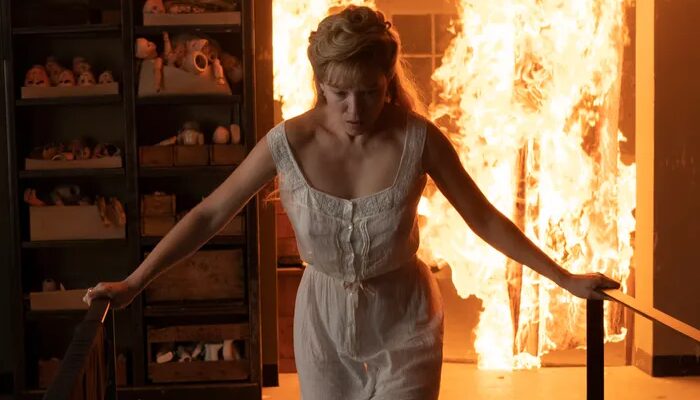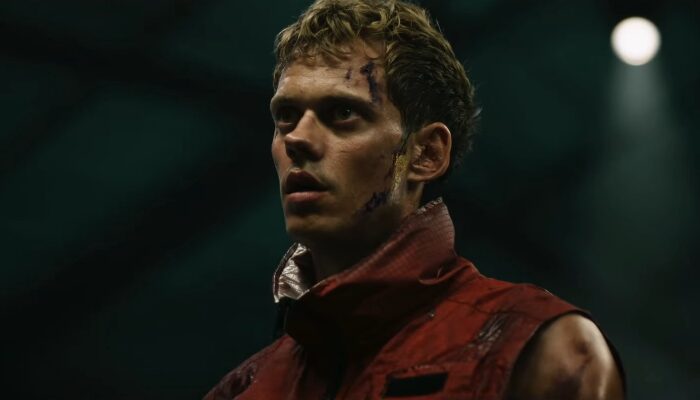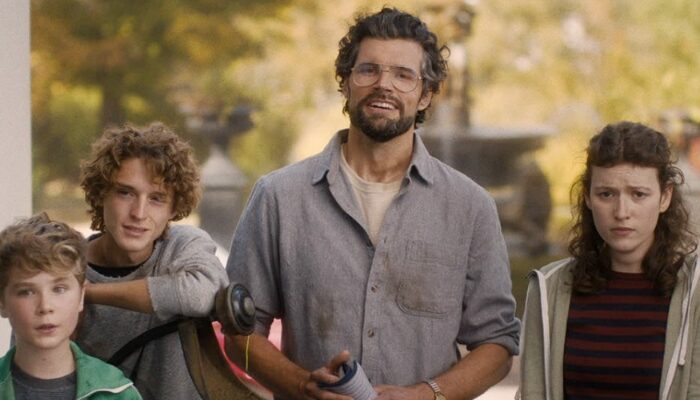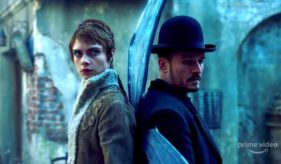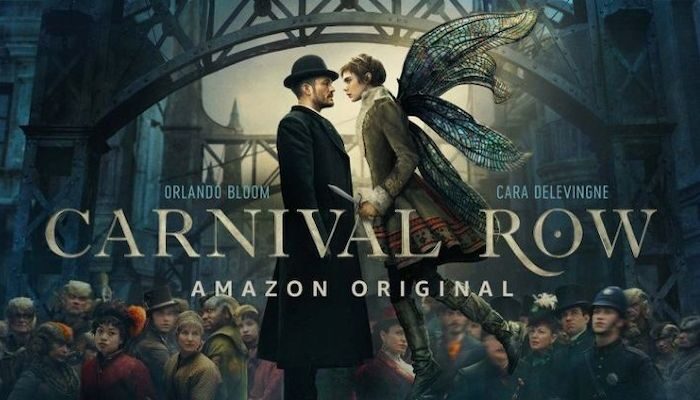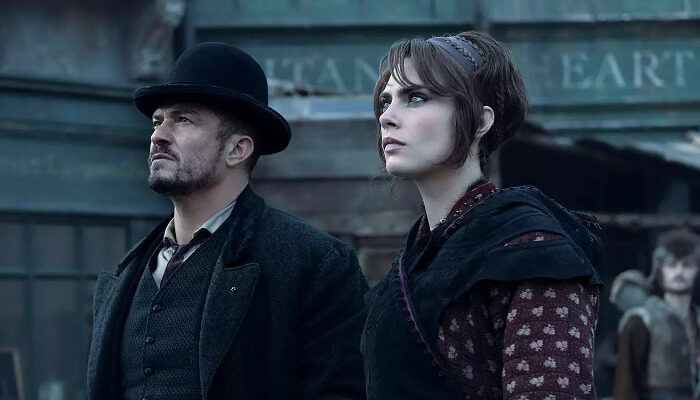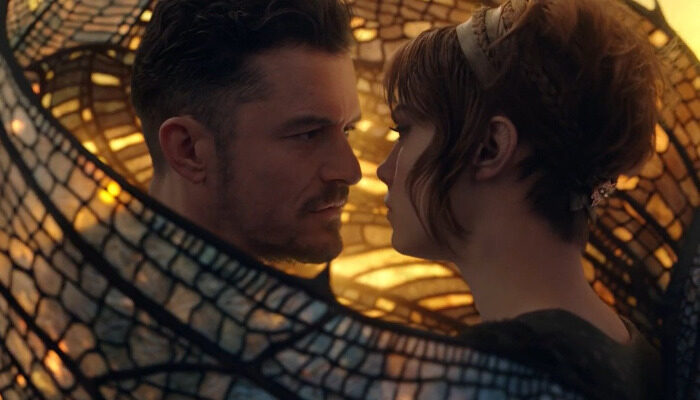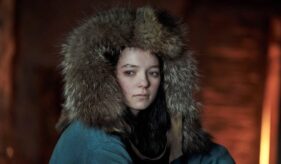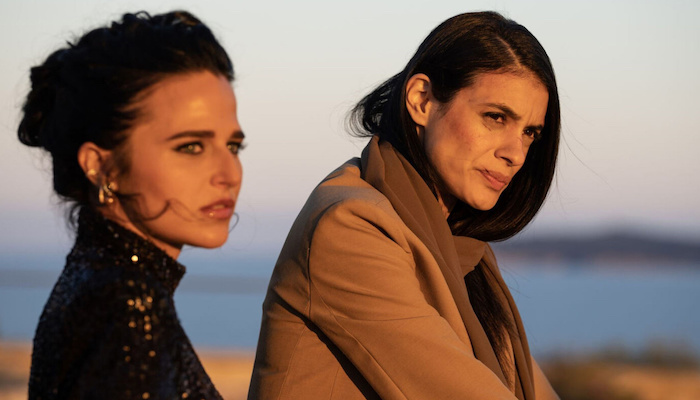TV Review: CARNIVAL ROW: Season 1, Episode 1: Some Dark God Wakes [Amazon Prime]
Table of Contents
Carnival Row Some Dark God Wakes Review
Amazon Prime‘s Carnival Row: Season 1, Episode 1: Some Dark God Wakes is the beginning of a substantive fantasy TV series.
The Beginning, War, and World-building
The opening on-screen text lays the foundation for what the viewer sees in a forest-turned-battlefield within Tirnanoc. The tone is set immediately that this is an R-rated TV series that doesn’t shy away from the horrors of armed combat.
One question that pops up during this moment in Some Dark God Wakes is where are the fae weapons? If the faerie were peaceful when humans came to Tirnanoc, that would explain a lack of advanced weapons like handguns and rifles but where are the faerie swords, shields, spears, and bows and arrows? What do they hunt game with?
As the war raged and their land was taken from them, why didn’t the faerie pick up human weapons from the dead and use them against man? Native-Americans did so. Why not the faerie? These questions become omnipresent when the viewer realizes that the fae on-screen, running toward salvation, are behind enemy lines (an invaded Tirnanoc).
Detail questions like these (hopefully answered in future episodes) only occur upon reflection. They do not occur as the viewer watches the scene or Some Dark God Wakes. Rather, the viewer sits and enjoys as a familiar yet fantasy-layered Victorian world unfurl before their eyes.
World-building begins instantly as the viewer simultaneously learns about the past and present of Tirnanoc, The Burge, and the larger world containing both territories.
It’s not just the opening text that starts the show off on the right footing. It’s also the ship / cargo-hold scene, a scene that contains the introduction to the three-dimensionality of Vignette Stonemoss (Cara Delevingne), whom the viewer up to that point has only seen as a group leader and the fearless killer of a demon dog. Stonemoss is a fae in mourning, in love with a human that has been dead for many years. Her love for him was so profound, possibly her first and only love, that her melancholy over his loss has gone on unabated. She looks at a picture of her fallen lover as Dr. Frankenstein would to a corpse – trying to conjure the dead from an inanimate object.
The Shipwrecked Survivor
It’s poetic how Vignette holds onto the aforementioned picture, like she hangs to her past love’s memory, after the shipwreck. It is left a mystery how she got out of the locked ship’s cargo-hold but it is also not important. What is important is the result of the shipwreck.
Indentured Servant
The indentured servant segments of Some Dark God Wakes are what the viewer would receive in any TV series where a rich family hires someone from the perceived lower class. What sets Carnival Row apart is that the aforementioned lower class citizenry is made up of faerie.
These sequences in Some Dark God Wakes show the viewer different aspects of the faerie / human dynamic as well as a different section of Burge society.
The indentured don’t get paid for their work but many are grateful for their positions (e.g. a place in the human world and a “full belly”). Many of the indentured faerie are thankful for this service opportunity and its benefits. Through Vignette, the viewer is given a different perspective on this situation and shown someone that is not “grateful” for a position in an opulent human household. Vignette deigns to do her work out of obligation not gratitude, not realizing the step-up in society (e.g. free room and board, clothing, etc.) she has been given fresh off the boat or in her case, fresh off the wreck.
Racism Through a New Lens
Racism and prejudice are beautiful drawn in Some Dark God Wakes through the faerie and their various types (Trow, Centaur, Faun, and Fae). Much like the final season of Penny Dreadful when Dr. Jekyll is introduced, people’s fear and loathing of differences and the unknown comes forth in Carnival Row in racial slurs, slights, and the treatment of the other as the other.
This is first seen in The Burges’ parliament as opposing parties jockey for power, using the faerie as scapegoats for the woes of Burge society. The faerie are a pawn for humans to keep and to gain power through in The Burge. The fact that the faerie are sentient beings and deserve the same rights and protections of humans is secondary (if a consideration at all).
The same second class status for the faerie is seen on the streets of The Burge as well as they are preyed upon by those in authority in a myriad of deplorable ways. The most egregious of which is the serial murders of faerie, offenses that gain the attention of humans and their police department. Unlike many of his compatriots, Police Inspector Rycroft Philostrate (Orlando Bloom) honestly cares about the faerie and sees them as equals, not inferior, and not something to be used. This comes through in how Rycroft talks to the faerie, interacts with the faerie, and how diligently he goes about hunting the faerie killer.
It’s not the killer hunt that is the most stand-out element of murderer story-line. It is how it informs the character of Rycroft Philostrate. The machinations in the murderer story-line establish that Rycroft is the type of person that could fall in love with a faerie. That he is the type of person that could potentially be an ambassador between the faerie and the humans. Rycroft has the singular trait that is important in such a role – compassion, whether that is for a human or faerie, he treats both the same.
That equal treatment also occurs with Rycroft’s hidden feelings and his avoidance of talk about the past.
The Buried Past
The past is a presence always with Rycroft, like Marshall in Bruce A. Evans‘ Mr. Brooks. It speaks to him though the viewer doesn’t know yet what it is saying or what he is reliving. From the trailers for Carnival Row, the viewer knows there will eventually be war flashbacks in the series. My guess is that Rycroft is thinking about: 1.) warfare, 2.) the love that he gave up, 3.) regret, and 4.) the wall that he has erected around his heart because of his past.
Portia Fyfe (Maeve Dermody) may not be ready for a new husband but she is ready for more than she is receiving from Rycroft. She admirably tries to break through the barrier that has accreted but its thick and she doesn’t possess the right chisel to deconstruct and get to what has been locked away. The viewer can tell by his reticence that it is more than the horrors of war that keep Rycroft’s tongue-tied. Whatever it happens to be is emotional and troubling, not that warfare isn’t, but what Rycroft is keeping to himself is tied to all of it. If he tells Portia one part of his war story, he will have to tell her all of it. That would give his pain life again, make it hurt again, drag back sorrow again, and he doesn’t want that so he remains taciturn and distant, to the dismay of a beautiful woman who would gladly offer a penny for his thoughts.
The Reunion
When Vignette and Rycroft finally reunite, its nothing like the dreams either of them has had of such a reunion, especially Vignette (Rycroft isn’t even happy to see her). When the bitter truth is revealed, it turns honey to poison in Vignette’s veins. The heart that she has given over freely to another is (and was) treated as though it is a insignificant trinket. A dichotomy takes place during this key moment in both of their lives: Vignette is emotional and vengeful (great acting by Delevingne) while Rycroft is cold and phlegmatic, as divorced for warm feelings as he would like to be from the past and the fae on top of him.
The scene left the viewer wondering about the beginnings of their relationship, how it matured, how they fell in love, and how Rycroft came to the decision to betray that love with a lie. What prompted it? What drove him from her? Was he forced to say the things he said? Did reality come slamming down on his soldiers like Captain Smith with Pocahontas in The New World?
Hopefully those answers await in the upcoming episodes. It would be a shame if they didn’t.
Leave your thoughts on this Carnival Row Some Dark God Wakes review and this episode of Carnival Row below in the comments section. Readers seeking more Carnival Row can visit our Carnival Row Page and our Carnival Row Facebook Page. Readers seeking more TV show reviews can visit our TV Show Review Page, our TV Show Review Twitter Page, and our TV Show Review Facebook Page. Want up-to-the-minute notification? FilmBook staff members publish articles by Email, Twitter, Facebook, and Tumblr.
Related Articles
FilmBook's Newsletter
Subscribe to FilmBook’s Daily Newsletter for the latest news!

